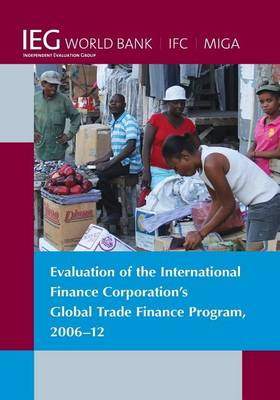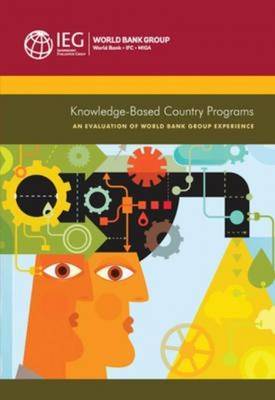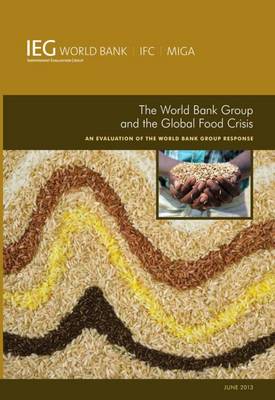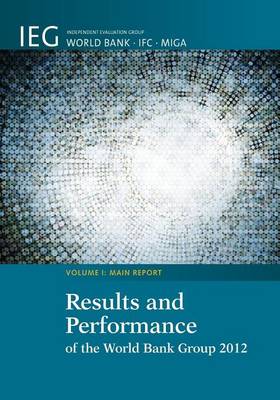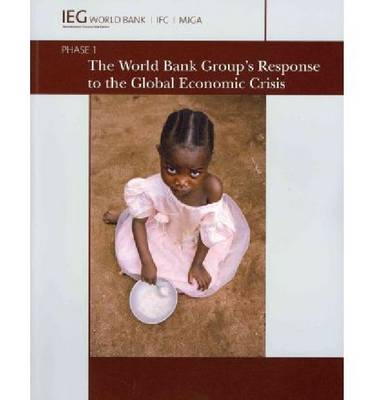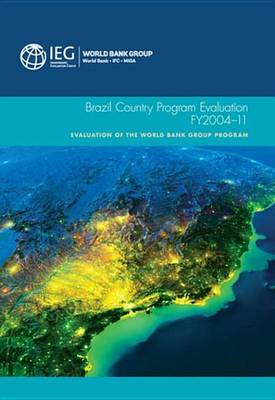Independent Evaluation Group Studies
7 total works
Evaluation of the International Finance Corporation's Global Trade Finance Program, 2006-12
by The World Bank
Published 6 December 2013
The World Bank Group is currently engaged in reflection and debate on how to improve the delivery of development support. Part of this debate concerns strengthening the knowledge agenda. The findings of this evaluation are particularly relevant because they speak directly to questions that the institution is deliberating. In particular, they address four key aspects of the 'science of delivery': the role of local partners or local knowledge hubs; consultation with clients and other stakeholders in the process of designing knowledge services; delivery of knowledge on issues that are relevant to the client; and improving the way the Bank Group learns from upper-middle-income countries and intermediating this knowledge to other countries.
The evaluation assesses knowledge-based activities in nine country programs selected from 48 knowledge-intensive programs supported by the Bank Group. It identifies the factors in the success or failure of those activities as they contribute to policy making or development outcomes. It also identifies areas of strength for the Bank Group as well as areas of weakness or risk. The main objective of the evaluation is to learn lessons from practices in a focus group of high-income and upper-middle-income countries that have knowledge-based programs with the Bank Group. The findings have implications for the Bank Group's knowledge work, including governance and incentives.
Over the past 15 years, Bank Group country programs have shifted toward more intensive delivery of knowledge services relative to lending, and this trend is expected to continue. The evaluation was done on economic and sector work and non-lending technical assistance activities selected from a purposive sample of knowledge-intensive country programs. In addition, the evaluation assessed International Finance Corporation Advisory Services for their synergy with the Bank's analytical and advisory activities. The lessons from this evaluation could help leverage the Bank Group's global knowledge to meet the needs of countries that mainly rely on knowledge services and are not pressed for financing.
The evaluation assesses knowledge-based activities in nine country programs selected from 48 knowledge-intensive programs supported by the Bank Group. It identifies the factors in the success or failure of those activities as they contribute to policy making or development outcomes. It also identifies areas of strength for the Bank Group as well as areas of weakness or risk. The main objective of the evaluation is to learn lessons from practices in a focus group of high-income and upper-middle-income countries that have knowledge-based programs with the Bank Group. The findings have implications for the Bank Group's knowledge work, including governance and incentives.
Over the past 15 years, Bank Group country programs have shifted toward more intensive delivery of knowledge services relative to lending, and this trend is expected to continue. The evaluation was done on economic and sector work and non-lending technical assistance activities selected from a purposive sample of knowledge-intensive country programs. In addition, the evaluation assessed International Finance Corporation Advisory Services for their synergy with the Bank's analytical and advisory activities. The lessons from this evaluation could help leverage the Bank Group's global knowledge to meet the needs of countries that mainly rely on knowledge services and are not pressed for financing.
The unanticipated spike in international food prices in 2007–08 hit many developing countries hard. International prices for food and other agricultural products increased by more than 100 percent between early 2007 and mid–2008. Prices for food cereals more than doubled; and those for rice doubled in the space of just a few months. The food price increases were particularly hard on the poor and near–poor in developing countries, many of whom spend a large share of their income on food and have limited means to cope with price shocks. An estimated 1.29 billion people in 2008 lived on less than $1.25 a day, equivalent to 22.4 percent of the developing world population. In addition, the Food and Agriculture Organization estimated that 923 million people were undernourished in 2007. Simulation models suggested that poverty rose by 100–200 million people and the undernourished increased by 63 million in 2008.
The World Bank organized rapidly for short-term support in the crisis, launching a fast-track program of loans and grants, the Global Food Crisis Response Program (GFRP). The GFRP mainly targeted low-income countries, and provided detailed policy advice to governments and its own staff on how to respond to the crisis. The Bank also scaled up lending for agriculture and social protection to support the building of medium-term resilience to future food price shocks. The International Finance Corporation responded by sharply increasing access to liquidity for agribusinesses and agricultural traders in the short and medium term, as well as new programs to improve incentives for agricultural market participants.
This evaluation assesses the effectiveness of the World Bank Group response in addressing the short-term impacts of the food price crisis and in enhancing the resilience of countries to future shocks.
The World Bank organized rapidly for short-term support in the crisis, launching a fast-track program of loans and grants, the Global Food Crisis Response Program (GFRP). The GFRP mainly targeted low-income countries, and provided detailed policy advice to governments and its own staff on how to respond to the crisis. The Bank also scaled up lending for agriculture and social protection to support the building of medium-term resilience to future food price shocks. The International Finance Corporation responded by sharply increasing access to liquidity for agribusinesses and agricultural traders in the short and medium term, as well as new programs to improve incentives for agricultural market participants.
This evaluation assesses the effectiveness of the World Bank Group response in addressing the short-term impacts of the food price crisis and in enhancing the resilience of countries to future shocks.
Results and Performance of the World Bank Group 2012
by Heather Dittbrenner and The World Bank
Published 25 February 2014
The World Bank Group's Response to the Global Economic Crisis
by The World Bank
Published 30 April 2011
This assessment underscores the strong countercyclical role that the World Bank Group has eventually played, with partners and countries, to help withstand the global downturn.
